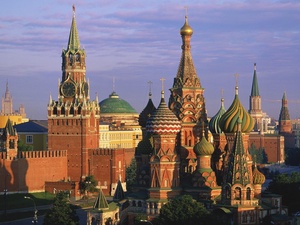
Arctic Frontiers: Disinformation, Security and the Northern Sea Route
Bellona held a seminar on countering Russian disinformation in the Arctic at the Arctic Frontiers international conference in Norway
News

Publish date: February 16, 2017
News
If there was ever any doubt that non-profits in Russia ran a risk of being discredited in the eyes of the public if they stepped afoul of the Kremlin’s “foreign agent” law, a recent pubic opinion survey cleared that up.
A year-end poll by the Levada Center, Russia’s single independent polling agency, found overwhelmingly that the “foreign agent” term as applied to NGOs inspires suspicion and fear in 57 percent of people that were asked.
“Foreign agent” has been the Kremlin’s term art of since 2012 to corrode confidence in the work of non-profit organizations that receive even small amounts of foreign funding.
The timing of the law’s adoption coincided with Vladimir Putin’s hard fought campaign against a public that turned out by the hundreds of thousands to protest his re-ascent to the Russian throne after a four-year hiatus. Typically, he blamed his unpopularity on meddling foreign influence.
 The office of a Russian NGO defaces with the words "foreign agent."
Credit: Memorial
The office of a Russian NGO defaces with the words "foreign agent."
Credit: Memorial
In 2014, Russia’s Justice Ministry received broad powers to pillory social, environmental and human rights groups for engaging in what it selectively construes as political activity by putting them on its foreign agent list.
Once there, groups are subject to crippling fines, microscopic audits, regular police raids, and eventual shuttering for failing to comply with ever more shifting rules and mounting fines.
By 2015, as the law approached its third birthday, it had forced the closure of more than a third of the NGOs in Russia, one of which was Bellona Murmansk. The Environmental Rights Center Bellona landed on the list earlier this year.
There are now 158 foreign agents – from legal advice centers to veterans’ aid organizations to sociology centers and a disproportionate number of environmental groups – on the Justice Ministry’s blacklist.
One of them, in fact, is the Levada Center, which turned up on the list in September after it published a poll showing sliding support for the Kremlin-supported United Russia party ahead of that month’s parliamentary elections.
The group, which has been publishing polls since 1980, conceded it will likely close because the stigma of being tarred with the foreign agent label makes collecting data impossible.
Yet, 1,600 people from half of Russia’s regions were comfortable sharing what they think of foreign agents with the group in a poll it conducted in December, presumably blind to the fact that they were talking to a foreign agent.
Of those who reported “negative” feelings when hearing the term foreign agent, 45 percent offered that they associated it with some specific common designations like “foreign spy,” “CIA agent,” “infiltrator,” and “mole.”
The term elicited stronger feelings from 7 percent of the respondents, who reported they link the Justice Ministry moniker for NGOs with words and phrases like “enemy of the people,” “traitor,” “enemy of Russia,” and “rat.”
The report also revealed that relatively few of those questioned were even familiar with the 2012 foreign agent law: 22 percent said they’d heard something about it, 2 percent said they knew it well, but 73 percent said they didn’t know anything about it at all.
Early defenders of the foreign agent law in Parliament suggested that NGOs could easily continue operating if they just adopted the term and carried on. Some optimists held out hope that such would be the case.
Those who work for non-profits, of course, knew otherwise and suspected an erosion of their work over time.
The Levada Center poll proves that erosion to be nearly complete. While very few people are even aware of the foreign agent law, the term alone excites skepticism, suspicion, distrust, and sedition.
An amendment under consideration in Russian parliament would conceivably finish the job. While NGOs labeled as foreign agents are required to advertise their supposedly dubious status on their websites, as Bellona.ru, Bellona’s Russian language site does, the Unity Party wants to see that warning bigger.
If deputies get their way, non-profits will be required to scare off readers by advertising their foreign agent status in the banners of their websites.
There’s little reason to think this new requirement, which will soon face the first of three readings before it’s adopted won’t pass with ease. Putin likely will pursue reelection to his fourth constitutionally allowed term next year, and his party knows better than to leave public opinion vulnerable to traitors, enemies of Russia and rats.

Bellona held a seminar on countering Russian disinformation in the Arctic at the Arctic Frontiers international conference in Norway

Our December Nuclear Digest, reported by Bellona’s Environmental Transparency Center, is out now. Here’s a quick taste of three nuclear issues arisin...

Bellona has launched the Oslofjord Kelp Park, a pilot kelp cultivation facility outside Slemmestad, about 30 kilometers southwest of Oslo, aimed at r...

Our November Nuclear Digest by Bellona’s Environmental Transparency Center is out now. Here’s a quick taste of just three nuclear issues arising in U...